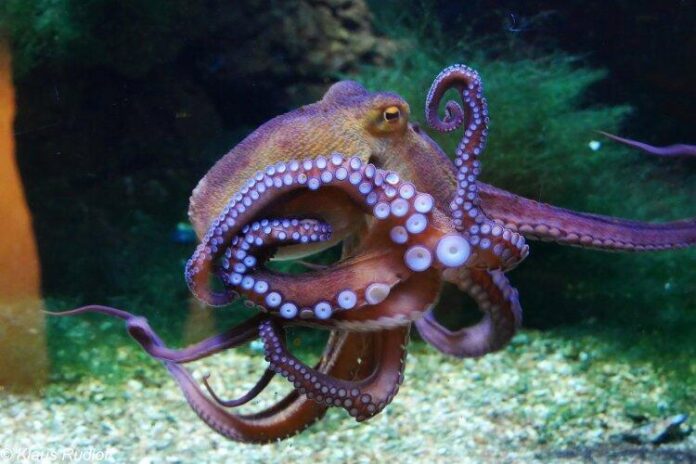We’ve all heard that octopuses are extremely intelligent. Despite their obvious differences to humans and other intelligent mammals, these creatures are amongst the smartest animals in the world. And now scientists have discovered a way in which an octopuses intelligence is similar to humans- through something called transposons.
The science part about transposons
Transposons contributed widely to the evolution of organisms. They are repetitive sequences of DNA that have the ability to move from one area of the genome to another. This is why they’re known as ‘jumping genes’.
When the transposons ‘jump’ from one section of the genome to another they can enter a gene, and cause mutations. They can also replicate and insert copies in the same or different chromosomes, and even change gene expression. Transposons are known as being inherently ‘selfish genetic elements’, as they will copy themselves at the expense of other genes.
Humans and Octopuses share genes that determine intelligence
Most transposons are dormant in humans and octopuses alike. Yet, a recent study brings to light a transposon that is active in both humans and two species of octopus. The common octopus (Octopus vulgaris) and the Californian octopus (Octopus bimaculoide) are two species that have transposons belonging to the LINE (Long Interspersed Nuclear Elements) family. The LINE transposons were active in the octopus’s frontal and vertical lobes, which is what handles cognitive ability in these creatures. This is functionally similar to the hippocampus in humans.
“I literally jumped on the chair when, under the microscope, I saw a very strong signal of activity of this element in the vertical lobe, the structure of the brain which in the octopus is the seat of learning and cognitive abilities, just like the hippocampus in humans,” said biologist, Giovanna Ponte from Stazione Zoologica Anton Dohrn research institute in Italy.
Research in humans has shown that LINE transposons in humans are linked to learning and memory, due to being most active in the hippocampus, the seat of learning in the brain. Finding them in octopuses confirms what scientists have been saying for years- that these cephalopods are extremely intelligent. Despite being invertebrates, scientists say that they function much more like a mammal.
“The brain of the octopus is functionally analogous in many of its characteristics to that of mammals,” says biologist Graziano Fiorito from Stazione Zoologica Anton Dohrn.
The discovery of the LINE transposon in both humans and octopuses doesn’t indicate that we are closely related though. This is an example of something called convergent evolution, which simply means that two different organisms independently evolved similar traits.

